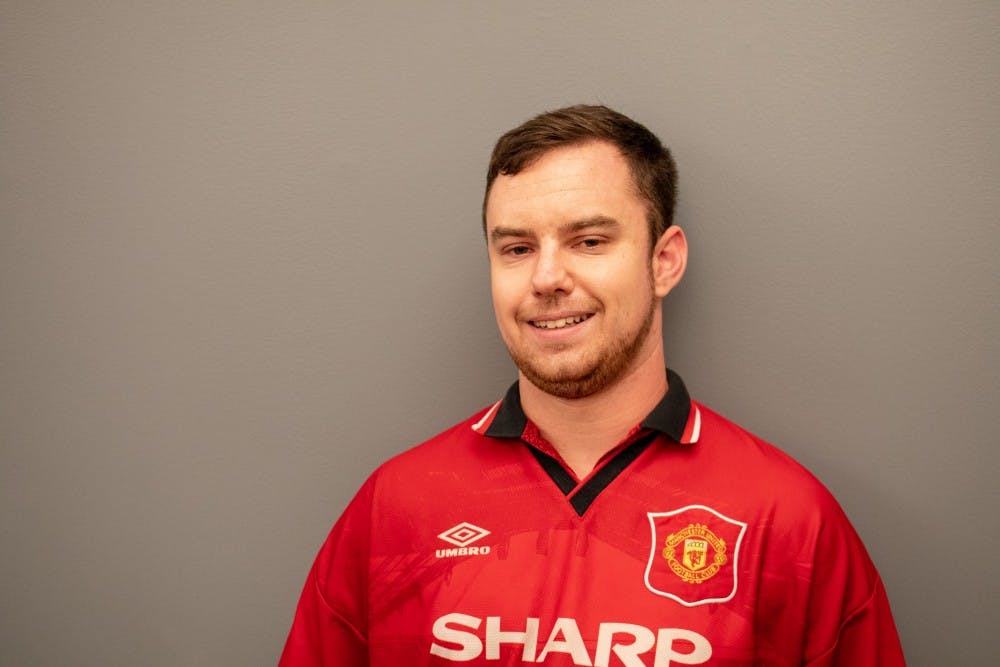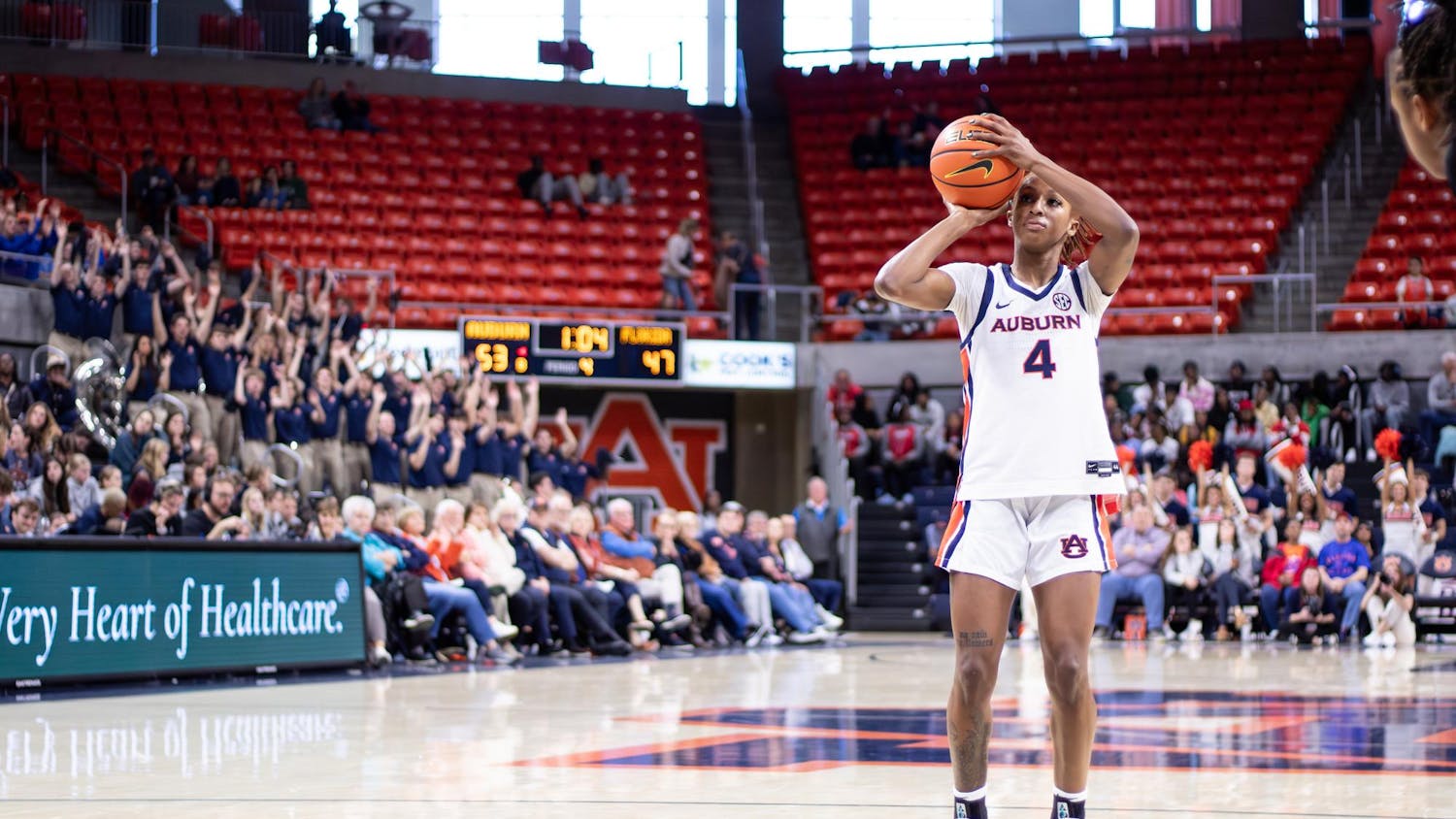He’s written a book about it. He’s been featured on NBC for it. He’s been a guest on podcasts to discuss it. And yet, no matter how many times he talks about it, he will always have trouble finding the words to describe it – a long-standing battle with depression.
At this point, having a conversation about mental health seems routine for Justin Mercer, who has become a strong advocate for those struggling with mental-health issues.
But after a long day of teaching a room full of high school kids, putting together a coherent thought about anything is a challenge.
“Today was just one of those days,” Mercer said with a tired laugh. “All the kids seemed to be having an off day on the same day.”
Mercer is interning at Opelika High School in order to fulfill the last portion of the master’s degree in education from Auburn University. He can still remember being on the other side of the classroom, where his battle with depression began.
Mercer attributes much of the source of his depression to when he was 12 years old. A tender age. An age in which his orientation to the world was being formed. And because he skipped a grade, an age in which Mercer found himself to be the youngest kid in his high school.
“When you’re the smallest kid, and you’re 12, it can be kind of tough,” Mercer said as his thoughts drifted off to a forgettable time in his life.
The first years of high school were filled with turmoil and angst, but Mercer was able to find solace in the stability high school offered. However, the rough first few years lingered with him throughout, and it all came to a head in his freshmen year at Auburn.
He went from living at home to living hours away. He went from a high school with about 250 students to a university with more than 25,000. Mercer’s life went through a massive transition, and the struggles with depression he experienced in high school came back even stronger.
“You put a lot of pressure on yourself, especially at Auburn,” Mercer said. “It’s such a competitive University with a whole lot of high-achieving people. If you’re not making the cut of achievement, you see all these people somehow having a great social life, great grades and the peak of health, and you’re like, ‘What the heck is going on? How am I not doing any of that? It can hit you pretty hard.”
In his first semester at Auburn, he attempted suicide.
He didn’t want to kill himself.
He just wanted to end the depression.
“I’ve been dealing with depression since I was 12, but I didn’t know it was depression till I was 18,” Mercer said.
The setback in high school haunted Mercer for years down the line, but at the end of the day, Mercer attributes his mental-health issues to a chemical imbalance in his brain.
“Chemical becomes emotional becomes physical,” he said. “At my worst, I was just laying there unable to make myself move because it was that bad.”
The attempt acted as a wake-up call for Mercer. He realized that he needed to seek help. After slowly inching out of an extremely dark place, he met with a counselor from the student counseling services, who just so happened to be the faculty adviser to Auburn’s chapter of Active Minds.
Active Minds is a mental-health advocacy organization that specializes in college students, and there are chapters on more than 450 campuses across the country.
Whether it’s lobbying to get more resources for the student counseling services or passing out bubble wrap on the concourse, Mercer said Active Minds is all about removing the stigma surrounding mental health.
Joining the organization did not cure Mercer’s depression, but it did allow him to have a space in which he felt comfortable talking about the thoughts that plagued him for years. But on top of that, Active Minds helped Mercer by giving him the opportunity to help others with the same issues he was having.
“Active Minds is not a peer-support group, but rather, we want to change the conversation, change the culture,” Mercer said.
After getting out of the organization exactly what the organization is intended to provide, Mercer served as the chapter’s vice president, sharing his journey in the hope of helping people in a similar situation.
Following graduation, Mercer taught in American Samoa for a year before returning to Auburn to pursue a master’s degree. Still wanting to positively affect people’s lives, he has remained heavily involved in Auburn’s chapter as well as publishing a book on his journey and being a resource to anyone who needs it.
Taylor Jean Annerino, the chapter’s current vice president, speaks highly of how much Mercer is involved in the organization.
“Just absolutely one of the greatest guys you’ll ever meet,” Annerino said. “Just so genuine and so kind. He has such a passion for mental health. It really does show with everything.”
She said that even with graduate school and teaching, he comes to every meeting, and she doesn’t think they could do Active Minds without him.
Markie Pasternak, former national student president of Active Minds, recently became the coordinator for mental well being at Auburn, and she also serves as the co-adviser for Auburn’s chapter of Active Minds.
Pasternak was a member of her universities’ chapters at Marquette University and Indiana University, so she knows that Mercer’s story is not an uncommon one. But she said the way he has bounced back has been an incredible example of how Active Minds has impacted someone struggling with depression.
“There’s a statistic out there that one in four, and that’s currently turning into one in three people experience a mental-health issue,” Pasternak said. “That is how many people might be feeling the way Justin did.”
Active Minds was recently featured on NBC Nightly News, and because of how much Pasternak thought of Mercer’s story, he was recommended to be a central focus of the feature as well as Auburn’s chapter.
Mercer said that in no way has he moved past depression as a whole, but he has learned how to deal with the inevitable ups and downs that life provides.
For years, Mercer had trouble finding the words to describe the battle with depression and suicidal thoughts, but Active Minds has taught him that even if he has trouble talking about his situation, it is much easier to listen to and be a friend to someone who is going through similar experiences.
“You touch one person, they turn around and help someone else, and it kind of spreads like that,” Mercer said.
Do you like this story? The Plainsman doesn't accept money from tuition or student fees, and we don't charge a subscription fee. But you can donate to support The Plainsman.





